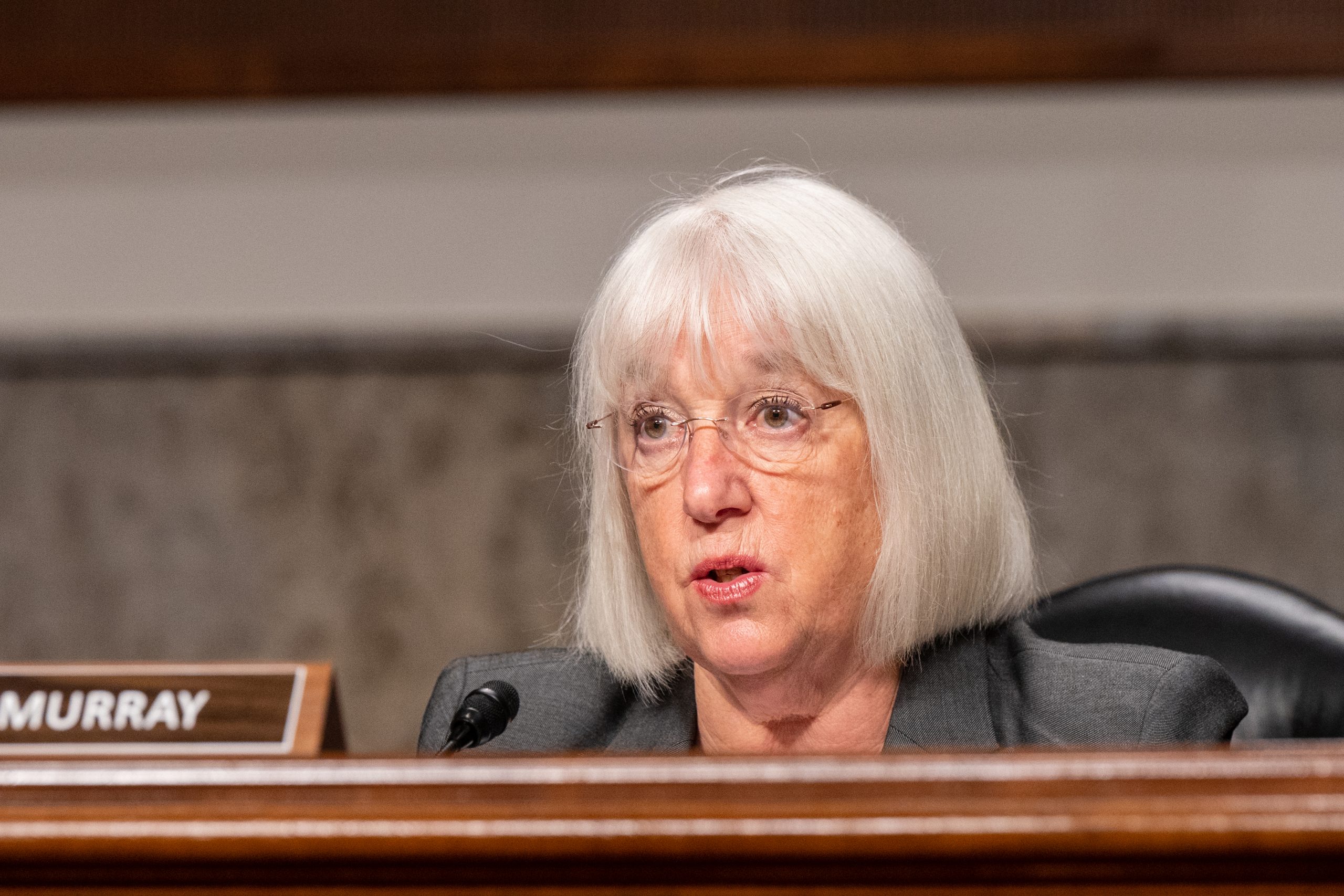Washington DC - Today, U.S. Senator Patty Murray (D-WA), former Chair and senior member of the Senate Health, Education, Labor and Pensions (HELP) Committee, and Senator Sherrod Brown (D-OH) introduced the Fair Warning Act, legislation that would update the WARN Act to ensure that workers and their communities get a fair warning when they are going to be affected by layoffs or business closures. Under current law, too often employers get away with making these life-changing decisions without giving any notice at all. The Fair Warning Act would hold employers accountable and give workers and communities the notice they need to best prepare for, and recover from, decisions from their employers that could cost them their jobs.
“Workers should be able to expect a warning when they are the ones who have to deal with the consequences of layoffs or business closures—but under current law, too often employers can get away with making these life-changing decisions without giving any notice at all,” dijo el senador Murray. "I am proud to reintroduce this bill with my friend Sherrod Brown—a true champion for workers everywhere—and to continue working to hold corporations accountable.”
“More than three decades ago, our country passed the WARN Act, setting rules requiring notifications of layoffs and closures in some circumstances. But in too many cases, it doesn’t apply, or companies ignore the rules, and Ohio workers get left behind,” dijo el senador Brown. “That’s why we’re introducing the Fair Warning Act to hold employers accountable and give workers, families, and communities the notice they need to better prepare for and recover from these layoffs. We cannot accept that the future of work means lower pay, less job security, and fewer workplace protections.”
El Fair Warning Act makes the following pro-worker changes to the WARN Act to better protect workers and hold employers accountable:
- Who is Considered an Employer: Current WARN Act requirements do not apply to employers that have fewer than 100 employees, excluding part-time employees. The Fair Warning Act of 2023 expands the statute to apply to any business that employs 50 or more employees, including part-time employees, or has an annual payroll of $2 million. It makes an employer’s affiliate liable when it causes it to violate the WARN Act.
- Who Gets A WARN Notice: The current WARN Act does not require layoff or closure notification in enough circumstances, allowing employers to lay off workers with no notification in many cases, including when employees are spread around different worksites or are considered part-time employees. The Fair Warning Act of 2023 fixes these weaknesses by requiring employers to issue a notice when a layoff affects 10 or more employees, including part-time employees, at one worksite or 250 or more employees, including part-time employees, at an employer across multiple sites. It also requires a notice when a site closing affects 5 or more full-time and part-time employees, and requires that employees working remotely be counted and provided notice.
- When WARN Notices Are Issued: Currently, employers are required to give only 60 days’ notice in the event of a mass layoff or worksite closure. That’s not enough time for the workers or communities to prepare. The Fair Warning Act of 2023 prevents employers from ordering a mass layoff or closing a worksite until 90 days’ notice has been provided. It requires that temporary layoffs include participation in short-time compensation and a recall date. In addition, the Fair Warning Act of 2023 requires the state to establish a Rapid Response committee and an individual to lead that committee within 20 days of a WARN notice being issued so that affected employees can quickly get the training and other support services they need to prepare for their job loss.
- Strengthening WARN Enforcement: El Fair Warning Act of 2023 strengthens enforcement of WARN requirements by making employers liable for liquidated damages equal to 30-days of back pay in addition to the back pay and benefits they owe under current law. The Fair Warning Act of 2023 also protects employees’ right to bring a class action lawsuit for WARN violations even if the employer says they should be subjected to mandatory arbitration.
- Tracking WARN Notices: El Fair Warning Act of 2023 requires the Department of Labor (DOL) to create and make public a searchable database of all WARN notices to help the public and policymakers track when and where layoffs and business closures occur.
- What a Temporary Project is: El Fair Warning Act of 2023 requires transparency on the duration of a “temporary project” where the WARN Act would not apply, making it obvious that workers are signing up for a temporary project when they are joining it.
- Prevents the Waiving of WARN Act Rights: El Fair Warning Act of 2023 ensures that employers cannot waive away WARN Act rights through any pre-dispute arbitration agreements or waiver.
- Protects Medical and Parental Leave: The current WARN Act does not have any provisions preventing notifications of layoffs from being administered to an employee while they are on medical, family, or parental leave. The Fair Warning Act of 2023 protects this leave by adding to the 90-day notice timeline an additional day for each day that an employee is on medical, family, or parental leave during that time, and a day for each day that an employee has their leave cut due to loss of employment.
U.S. Senators Bernie Sanders (I-VT) and Elizabeth Warren (D-MA) are cosponsors of the bill, and U.S. Representatives Emilia Sykes (D-OH-13), David Trone (D-MD-06), and Nikki Budzinski (D-IL-13) introduced the House version of the bill.
###


